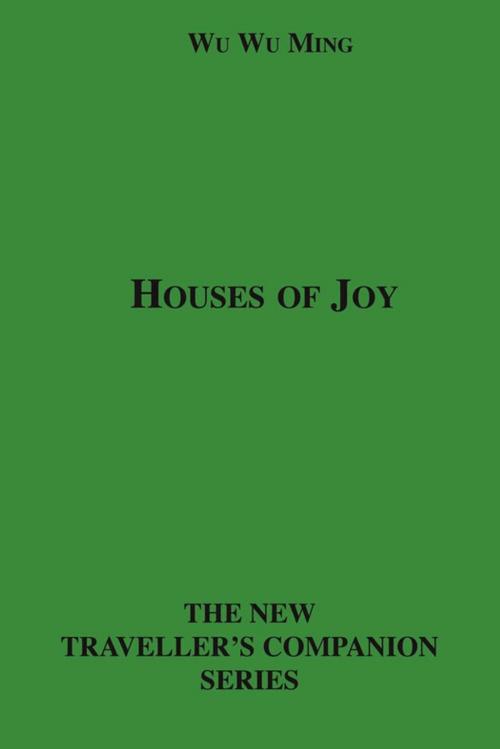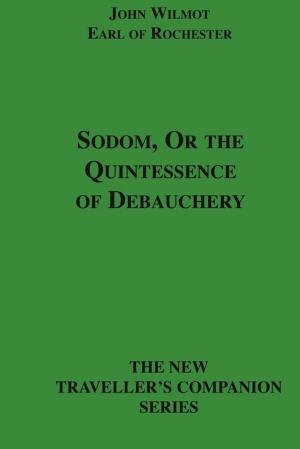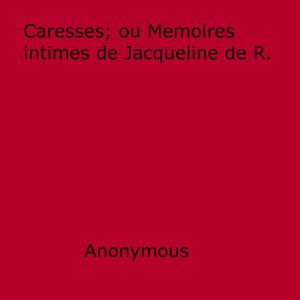| Author: | Wu Wu Ming | ISBN: | 9781626570030 |
| Publisher: | Disruptive Publishing | Publication: | January 18, 2013 |
| Imprint: | Disruptive Publishing | Language: | English |
| Author: | Wu Wu Ming |
| ISBN: | 9781626570030 |
| Publisher: | Disruptive Publishing |
| Publication: | January 18, 2013 |
| Imprint: | Disruptive Publishing |
| Language: | English |
One of the funniest moments in the history of Olympia came when the South African poet Sinclair Beiles entered Girodias' office with sheets of paper adorned by Chinese characters. Telling Girodias a story about youth spent among missionaries in China, Beiles indicated his reams of parchment, and stated that they were unique erotic writings from that nation, and all he'd need to translate this phenomenal document would be some money each week for a new chapter... As it turns out, Beiles was working from an earlier translation of the 15th century erotic classic Jin Ping Mei, a work about Hsi Men (Ximen Qing) and his six wives that, with its graphic descriptions and instructions, is said to have inspired the Kama Sutra, among other books. The Jin, Ping and Mei in the title are the later three wives, and the most interesting ones for our purposes. One of those later spouses, whose name translates as Golden Lotus, is a character from the classic "Outlaws of the Marsh," delightful woman lady who poisons her ugly, smelly, not-getting-it-done first husband to marry the libertine Hsi Men, and is punished for this crime by the tiger-slaying, heroic brother of husband one. In Jin Ping Mei, Hsi Men is able to take advantage of the corrupt regime and have that heroic brother sent far, far away, while he continues to enjoy his wives and lifestyle. Beiles simplified and improved upon his translation, removing tedious interviews with court officials and drawing out some of the more intimate scenes.
The work is also known, in English, as "Golden Lotus," "The Love Pagoda," "The Six Wives of Hsi Men," etc...
One of the funniest moments in the history of Olympia came when the South African poet Sinclair Beiles entered Girodias' office with sheets of paper adorned by Chinese characters. Telling Girodias a story about youth spent among missionaries in China, Beiles indicated his reams of parchment, and stated that they were unique erotic writings from that nation, and all he'd need to translate this phenomenal document would be some money each week for a new chapter... As it turns out, Beiles was working from an earlier translation of the 15th century erotic classic Jin Ping Mei, a work about Hsi Men (Ximen Qing) and his six wives that, with its graphic descriptions and instructions, is said to have inspired the Kama Sutra, among other books. The Jin, Ping and Mei in the title are the later three wives, and the most interesting ones for our purposes. One of those later spouses, whose name translates as Golden Lotus, is a character from the classic "Outlaws of the Marsh," delightful woman lady who poisons her ugly, smelly, not-getting-it-done first husband to marry the libertine Hsi Men, and is punished for this crime by the tiger-slaying, heroic brother of husband one. In Jin Ping Mei, Hsi Men is able to take advantage of the corrupt regime and have that heroic brother sent far, far away, while he continues to enjoy his wives and lifestyle. Beiles simplified and improved upon his translation, removing tedious interviews with court officials and drawing out some of the more intimate scenes.
The work is also known, in English, as "Golden Lotus," "The Love Pagoda," "The Six Wives of Hsi Men," etc...















